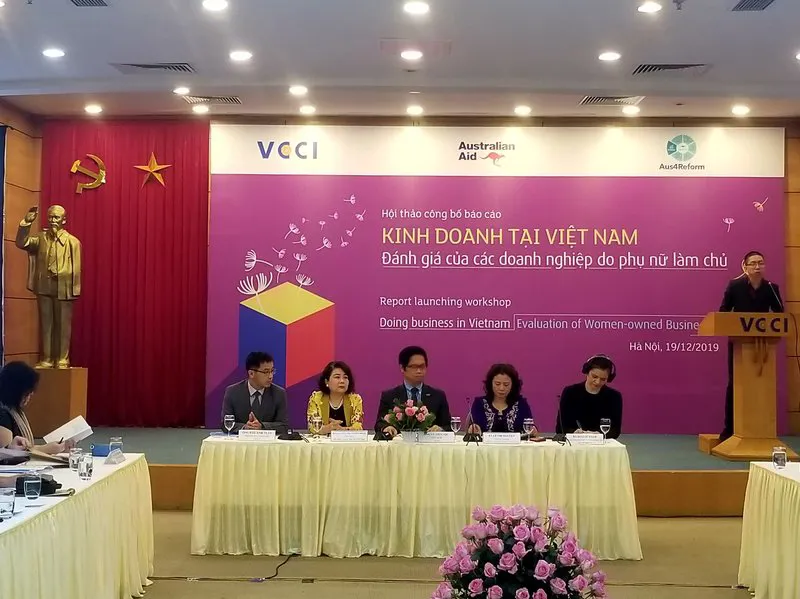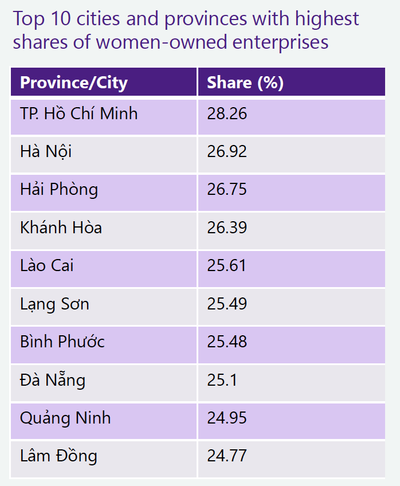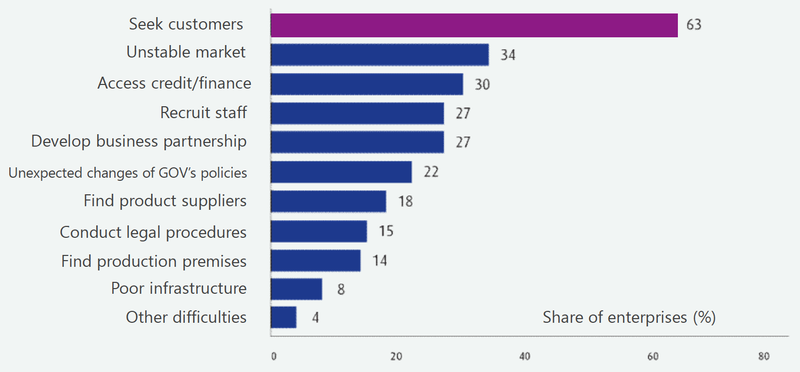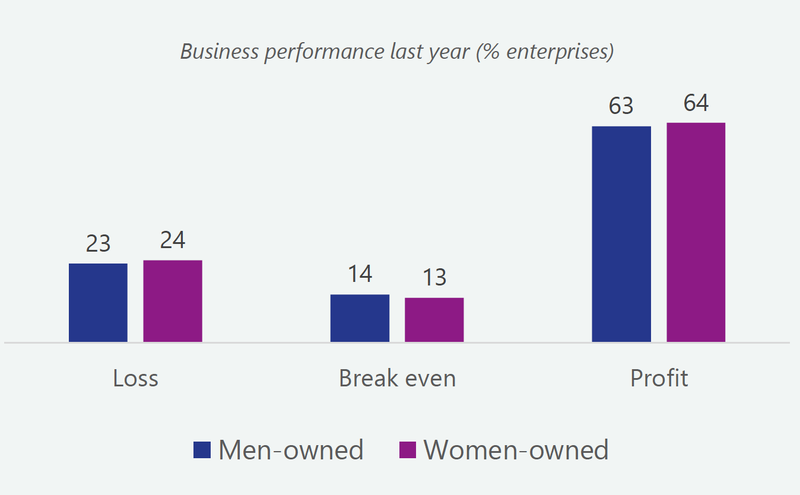Hanoi in Vietnam’s top 2 cities with highest proportion of female entrepreneurs
The bigger the economic size the higher the number of enterprises run by women, said Vu Tien Loc, chairman of Vietnam Chamber of Commerce and Industry.
Ho Chi Minh City and Hanoi, Vietnam’s two major economic hubs, take the two top spots nationwide in terms of percentage of women-led enterprises at 28.26% and 26.92%, respectively, according to Vu Tien Loc, chairman of the Vietnam Chamber of Commerce and Industry (VCCI).
| Overview of the workshop. Source: Ngoc Thuy. |
“This indicates the bigger the economic size the higher the number of enterprises run by women,” said Loc at a workshop under the program “Australia supports Vietnam’s economic reform” (Aus4Reform) on December 19, discussing the prospects of women-led enterprises in Vietnam.
“A higher rate of women doing business is key for high economic growth,” Loc continued.
In recent years, Vietnam has witnessed remarkable achievements regarding gender equality, while women are playing an increasingly important role in the business community as well as the economy, said Loc.
However, the indicator ‘percentage of women running businesses reaching 30% in 2015 and over 35% in 2020 planned in the National Strategy on Gender Equality for the period 2011-2020 may not be achieved, stated Loc.
According to Loc, female business owners still express concerns over the fact that their businesses continue to face gigantic obstacles and challenges in terms of business environment and social prejudice.
| Major obstacles for women-led enterprises. Souce: VCCI. |
The Global Gender Gap Report 2018 under the World Economic Forum ranked Vietnam at 77th out of 149 countries and territories, down seven places compared to one year earlier. In the sub-criterion of women holding positions of legislators, senior officials and managers, Vietnam ranked 94th out of 149 with scores of 0.374 out of the maximum of 1.
To improve the business environment and enabling services to support businesses and to learn from good international practices, therefore, it is essential to realize gender equality goals embedded in economic activities, Loc stressed.
Acting Economic and Development Cooperation Counsellor of Australian Embassy Kellie Raab said Vietnam should ensure rights of women in doing business as part of its effort in improving business environment, saying “it would bring prosperity for all.”
“Australia has always been supportive to women-led enterprises in Vietnam, especially through financial initiatives and policies to help them better access to credit,” said Raab.
Statistics from the Department of Business Registration Management under the Vietnam’s Ministry of Planning and Investment showed by the end of September 2019, there were 285,689 women-owned enterprises nationwide, accounting for 24% of the total number of enterprises.
A study from the VCCI revealed 75% of women-owned enterprises operate in trade and service sector, while most of them are of small and medium sized employing fewer than 50 people.
Dau Anh Tuan, director of the VCCI’s Legal Department, pointed to the fact that although female owners face greater difficulties in accessing capital than male ones (69% of women-led enterprises with registered capital of US$215,840 or less versus 65% of male-owned enterprises), the business performance of women-owned enterprises is similar to that owned by men.
| Source: VCCI. |
In addition to credit access, Tuan listed customers seeking and unstable market are major obstacles for women-led enterprises, while it is also more difficult for female entrepreneurs than male in predicting changes in the government’s policies.
To ensure a more active role of women in the business community, Tuan suggested the government should fine-tune relevant policies and regulations to foster a startup spirit for women and promote businesses owned by female entrepreneurs, while thoroughly assessing gender impact and gender mainstream in policy.
Moreover, a national strategic framework on promoting businesses owned by female entrepreneurs is necessary to encourage business support and capacity building services for businesses owned by female entrepreneurs, Tuan stated.
| The VCCI defined women-owned enterprises are those that have at least a female general director, or a chairwoman of the board of directors, or at least 51% of shares are owned by one or more female shareholders. |















